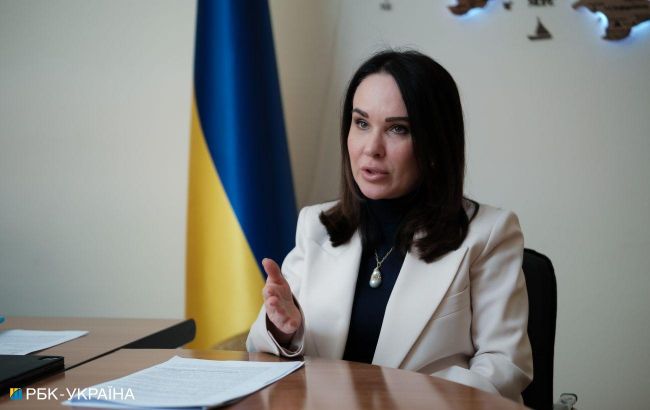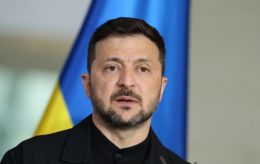Ukraine's Presidential office explains why some nations oppose lifting immunity from Russian top leadership
 Photo: Iryna Mudra, Deputy Head of Ukraine's Presidential office (Vitalii Nosach/RBC-Ukraine)
Photo: Iryna Mudra, Deputy Head of Ukraine's Presidential office (Vitalii Nosach/RBC-Ukraine)
The countries that were categorically opposed to lifting immunity from Russia's top political and military leadership feared that such a move might set a precedent that could be used against their own rulers in the future, Iryna Mudra, Deputy Head of Ukraine's Presidential office, says in an interview with RBC-Ukraine.
According to Mudra, during the discussions on lifting the immunity of Russia's top political and military leadership, some countries objected, and others insisted that no one should enjoy immunity when it comes to the crime of aggression.
The countries that insisted on retaining immunity argued that their position aligned with international law, claiming that there were no grounds to violate those requirements.
"...they were more afraid of creating a precedent that could later be used against their leaders. We understand that there is no statute of limitations for creating a tribunal, and they feared that their leaders might also be held accountable for past events by a similar tribunal established by a coalition of other states," explained the Deputy Head of Ukraine's Presidential office.
Special tribunal for Russia
In September 2022, a working group was established in Ukraine to explore the issue of creating a special international tribunal for the crime of aggression against Ukraine. A few months later, the Ministry of Foreign Affairs of France announced the start of work on establishing a special tribunal to address Russian crimes involving European and Ukrainian representatives.
In mid-January 2023, the European Parliament adopted a resolution calling for creating an international tribunal for Russia and Belarus. By March, as the former Minister of Foreign Affairs of Ukraine Dmytro Kuleba stated, 30 countries had already expressed support for establishing the tribunal.
As noted by the Secretary General of the Council of Europe, Alain Berset, significant progress on the special tribunal for Russia is expected as early as April of this year. Negotiations on its establishment are currently ongoing.

